|
Church organist, Leona Coulter and the choir performed, "The Power of the Cross" at out Easter Sunday Service 2017. You can listen to it again, here.
0 Comments
Before they call I will answer; while they are still speaking I will hear. Exodus 65: 24 Dr Walker used the story of Peter's arrest and escape to illustrate the power of prayer. While we are still asking, God is putting things in place.... He answers yes, no, or not yet....but keep praying. And if you don't get the answer you think you should: - it's not because you don't have enough faith - it's not because you're not good enough - it's not because God didn't want to God knows the best pace for one thing to happen so that another can come to pass. God knows what we cannot possible see in front of us. Some things have to happen to fit in with the parts of the plan 'on the other side of Jerusalem' that we can't see. Trust that He is working Trust that He is caring. Trust that He is listening and answering. We don't know who is standing outside the door until we open it. Dr Heather Walker: When you pray you really do make a difference
Alister Bell was the preacher on Sunday past and his call to worship was from Psalm 95: 6,7 “Come, let us worship and bow down. Let us kneel before the LORD our maker, for he is our God. We are the people he watches over, the flock under his care. If only you would listen to his voice today!” The opening hymn was, Majesty, worship His majesty. Alister told the story of the minister who, when asked how his flock was, replied, “I don’t have one; they think for themselves. He encouraged the congregation to continue the Non-Subscribing tradition of liberal, free thinking - to challenge, question and interpret, in a respectful way. Alister quoted M-People singer Heather Small and her 2000 hit which reached No.16 in the UK Singles Chart: “Still so many answers I don't know Realize that to question is how we grow” You have to work it out for yourself. Doing the right thing for the wrong reasons doesn’t make it right. To question is to grow. Alister revealed that he wasn't the only member of his family to have preached from our pulpit. His uncle, the Rev Trevor Kennedy was the speaker at our Bowling Service back in November 2010.
‘We believe in the Sacraments’. This builds three previous articles regarding our faith: ‘We believe in God’, ‘We believe in Jesus’ and ‘We believe in the Holy Spirit’. There are three to go: one on the Bible, one on the Christian Life finally one on non-subscription. We began with our belief in God. The One God, met as Father, Son and Holy Spirit (as well as in the natural world around us). We explored how we understood Jesus Christ as Lord (name above all others), Master (guide in life) and Saviour (the one who brings us to God). And then, how the Holy Spirit as person or power (you decide!) the way God embraces His creation and changes the hearts of humanity. So, there’s us and there’s God and the gap between! That gap is bridged by the person of Christ, who showed by his mission, ministry, death and resurrection, how we too can become children of God, if we embrace His example, and open ourselves to the transformation which the Spirit offers. And that brings me to the Sacraments. In a moment, I’ll do the formal definition bit, but really the way to think about them is as a doorway to the Divine, a gateway to God. By what we do at a Baptism (Christening) or at the Lord’s Supper (Communion), we are seeking to open ourselves to transformation, by the power of the Holy Spirit and after the example of Christ Himself. What does Sacrament mean? It simply means a ceremony – or ceremonies - that bring Grace that is the Divine Life to us. The means by which we seek, and through which God offers, change; in the old language; ‘an outward and visible sign of an inward and spiritual grace’! Now Christians disagree on the number of Sacraments. Quakers says none, that ‘all life is sacramental’. Congregationalists, Methodists and Presbyterians (subscribing or otherwise), say there are two: Baptism and the Lord’s Supper. Anglicans say (technically), that there are seven (two major and five minor), whilst Roman Catholics and Orthodox Christians say that there are also seven but of equal importance adding: confirmation, confession, marriage, anointing of the sick and ordination, to baptism and the mass. So Christians are divided on the number. We are also divided in our understanding as well. Some Anglicans, Catholics and the Orthodox affirm transubstantiation, than the bread (or wafer) and wine become the body and blood of Christ. Other Anglicans go for consubstantiation that, that the bread (or wafer) or win somehow contain the body and blood of Christ, but are outwardly unchanged. Respectfully, we disagree. As Protestants; in common with Congregationalists, all other Presbyterians and the Methodists we affirm that the water in Baptism, the bread and the wine in the Lord’s Supper is symbolic, and that the change that occurs is in our hearts and not in the Hovis. But why just two Sacraments - the answer is simple. When we read the Bible we find that Jesus Christ only establishes (that is institutes) two. We do what we do, and believe what we believe, because we are followers of Christ. He is our Lord. We are His disciples. He commands. We follow. Recall Matthew 3:13-16 & 28:16-20 (NLT) once more: Then Jesus went from Galilee to the Jordan River to be baptised by John. But John tried to talk him out of it. “I am the one who need to be baptised by you, “he said, “so why are you coming to me?” But Jesus said, “It should be done, for we must carry our all that God requires.” So John agreed to baptize him. ‘After his baptism, as Jesus came up out of the water, the heavens were opened and he saw the Spirit of God descending like a dove and settling on him. And a voice said, “This is my dearly loved Son, who brings me great joy.’ Jesus gives us His example of Baptism. Jesus then commands that ‘It should be done’ (noting, that this is Baptism not ‘dedication’ which really is an Old Testament rite. And then, of course, we have the ‘Great Commission’: ‘Then the eleven disciples left for Galilee, going to the mountains where Jesus had told them to go, when they saw him, they worshipped him – but some doubted! Jesus came and told them his disciples, “I have been given all authority in heaven and on earth. Therefore go and make disciples of all the nations, baptizing them in the name of the Father and of the Son and the Holy Spirit. Teach these new disciples to obey all the commands I have given you. And be sure of this: I am with you always, even to the end of the age.” These words establish Baptism as a Sacrament. They are why we do, what we do; just as 1.Corinthians 11:23-26 and Luke 22:14-19 in the same establishes the Lord’s Supper. 1.Corinthians 11:23-26 (NLT):
‘For I pass on to you what I received from the Lord Himself. On the night on which he was betrayed, the Lord Jesus took some bread and gave thanks for it. Then he broke it in pieces and said, “This is my body which broken for you. Do this to remember Me.” In the same way, He took the cup after supper, saying this cup is the new covenant between God and His people – an agreement confirmed with My blood. Do this to remember Me, as often as you drink it. For every time you eat this bread and drink this cup, you are announcing the Lord’s death until He comes again.’ Friends, please note Christ’s clear commands. Baptism: ‘It should be done’, ‘Go and make disciples’, ‘Baptizing them in the name of the Father, and of the Son, and of the Holy Spirit’ and Lord’s Supper: ‘Do this to remember me’. By Baptism we come to faith, and by the Lord’s Supper we grow and are sustained in faith; both necessary for Salvation (being right with God). There is more that could be said. That it is properly – in the reformed tradition - the Lord’s Supper and not Communion; and the first word gives a greater emphasis on the ‘act of remembrance’, but that is for another day. But most importantly, we affirm the two Sacraments. These being Baptism and the Lord’s Supper, established by Christ in Scripture; the means by which we come to and are sustained in faith; open to all who are moved by love of God; the two ‘great and necessary’ Sacraments. What do non-subscribers believe? We believe in the Sacraments. Amen. This is the third in a series of addresses by The Rt. Reverend Christopher Wilson, MA Click here for the first address, We believe in God Click here for the second address, We believe in Jesus Click here for the thrid address, We believe in the Holy Spirit You will recall that this article are part of a series, the theme of which is what we as Christians and non-subscribing Presbyterians (and please note that we are Christians first and non-subscribers second) affirm. These then are the basics of our faith.
We started with our belief in God. The One God, immanent (revealed) and transcendent (hidden). We find evidence for God everywhere around us, not least in the natural world, and we meet him personally through His Son Jesus Christ. We progressed to our belief in Jesus. Stressing the sufficiency and simplicity of Scripture, we confess Him to be our Lord (name above all others), our Master (guide in life) and our Saviour (the one who bring us to God). He is all that the Bible claims Him be: Messiah (Chosen One), Son of Man (new ‘Adam’) and Son of God (the one in whom Humanity and Divinity meet); the sole King and Head of our church. So now we move to the Holy Spirit. We believe in the Holy Spirit. In fact, it is crucial, for any understanding of Christian faith. The LORD God is Spirit. It is His Spirit which moves across the waters in the story of creation. It is His Spirit – the Holy Spirit – which descends on Jesus at His Baptism in the Jordan. It is the means by which God embraces His creation. The Holy Spirit is at work all the time. You may think of it as the ‘second person’ of the Trinity if you will, or simply as the power of God at work in the world (remembering that ‘person’ comes from ‘persona’ which means ‘mask’) but however it is understood; without it there is no connection between Man and God; without it, Christ is stripped of His Divinity, reduced down becoming the ‘good man’ and no more worth following that a Socrates or a Buddha. It really is that important. With the Holy Spirit, there is creation and Christ. With the Holy Spirit there is redemption and renewal. Without it, the connections are broken, and we truly stand alone in the universe. Think of our first reading. This was from Matthew 3:13-16 & 28:16-20 (NLT): ‘Then Jesus went from Galilee to the Jordan River to be baptised by John. But John tried to talk him out of it. “I am the one who need to be baptised by you, “he said, “so why are you coming to me?” But Jesus said, “It should be done, for we must carry our all that God requires.” So John agreed to baptize him.’ Let’s be clear here. Baptism should be done. That was always the position of the church; and we baptise children and yes, adults (when they have not been previously baptised) after the example of Christ. But let’s never forget that the water is symbolic (the Seal on the Sacrament), just like the bread and the wine in the Lord’s Supper (Communion) it has no magical properties; for change is brought by the Spirit: ‘After his baptism, as Jesus came up out of the water, the heavens were opened and he saw the Spirit of God descending like a dove and settling on him. And a voice said, “This is my dearly loved Son, who brings me great joy.’ Note again, it is the Holy Spirit which transforms. And this transformation, this anointing, takes place after Christ comes up from the water. Thereafter Christ’s ministry begins with the Spirit (again) first leading Him into the wilderness. So when we baptise a child we are calling on that same Holy Spirit to transform, to bring them ever closer to Christ. The Holy Spirit, you see, seeks us all out. God through the same, through Christ, would bring all people into His Kingdom (not just some, the few the Elect, but all) and that requires and evangelical approach to baptism (that is, sharing that good news, that all souls who turn to God are saved): ‘Then the eleven disciples left for Galilee, going to the mountains where Jesus had told them to go, when they saw him, they worshipped him – but some doubted! Jesus came and told them his disciples, “I have been given all authority in heaven and on earth. Therefore go and make disciples of all the nations, baptizing them in the name of the Father and of the Son and the Holy Spirit. Teach these new disciples to obey all the commands I have given you. And be sure of this: I am with you always, even to the end of the age.” ‘ These words institute the Sacrament of Baptism. Why do we do it? We baptise because Christ, the Son of God, commands us to, turning none away, ‘suffer the little children to come unto me’ (Matthew 19:14 KJV); knowing that this is but the first step (for Jesus said teach these new disciples), trusting in the prevenient grace which brings children for baptism, and in the Holy Spirit to transform us all into the likeness of Christ. For the Holy Spirit would change us all. It would change old and young alike. Jesus promised it to His disciples in John 14:16 and as we heard it arrives in Acts 2:1-4 & 17,21 (NLT): ‘On the day of Pentecost all the believers were meeting together in one place. Suddenly, there was a mighty sound from heaven like a roaring of a mighty windstorm, and it filled the house where they were sitting. Then what looked like flames or tongues of fire appeared and settled on each of them. And everyone was filled with the Holy Spirit and began speaking in other languages, as the Holy Spirit gave them that ability.’ I love the idea of people understanding each other. That is surely a sign of the Holy Spirit at work; when division melts away, when reconciliation breaks out, when people learn to truly love God and neighbour as our Lord, Jesus Christ taught and showed, and everyone there was given that ability. And that is what is really exciting, God want no-one left behind, Christ was sent, Spirit-filled, to bring everyone home. All that is required is act of faith. An act of commitment, an opening to the Holy Spirit, to burn away Sin, pride, to change the world: ‘In the last days’ God says, ‘I will pour out my Spirit upon all people. Your sons and daughters will prophesy. Your young men will see visions, and your old men will dream dreams… But everyone who calls on the name of the LORD will be saved.’ So yes, non-subscribers do believe in the Holy Spirit. And we seek that same Holy Spirit, the Christ-Spirit, each and every day of our lives; knowing that only that can bring us to God, and only that can save us all. What do non-subscribers believe? We believe in the Holy Spirit. Amen. This is the third in a series of addresses by The Rt. Reverend Christopher Wilson, MA Click here for the first address, We believe in God Click here for the second address, We believe in Jesus Previously I explained how we believe in God. I also explained how that same God is both revealed in the world (for example, by nature) and yet is also hidden from us; God both immanent and transcendent. I explained how we meet this God personally, as Father (First Source), as Spirit, and – most profoundly – through His Son, Jesus Christ.
Our second affirmation: ‘We believe in Jesus’ Non-subscribers do indeed believe in Jesus. And whilst others are drawn into theological speculation as to how the whole Father, Son and Holy Spirit thing works; our faith in content with the simplicity and sufficiency of scripture; that Christ is our Lord, Master, and Saviour. These words: Lord, Master, Saviour are central to our faith. Let’s consider each in turn. Jesus is Lord. We find this in 1.Corinthians 12:3 and in Romans 10.9 (just as we heard in our opening sentences). The title does not mean God, as in the LORD God. The Bible distinguishes between ‘LORD’ and ‘Lord’. Rather, it is a respectful form of address; think of ‘Honoured Sir’ (in Greek Kyrios) and this was not unique to the person of Christ. But the Jews also used the word when they spoke of God, so when early Jewish Christians adopted the same title for Christ they were certainly implying that in Christ, God Himself is met. Christ as Lord means to put His name above all others. That is what we believe. There is none higher; it’s even in Clause 3 of our Constitution and Code of Discipline: ‘The Lord Jesus Christ is the sole King and head of the Church.’ And if Jesus is Lord, He is also our Master. The Son of Man (that is, the new man, the new ‘Adam’) and the Son of God; the one in whom divinity and humanity meet. As disciples we are attentive to Jesus’ teachings. And notwithstanding, His Great Commandment to love God and neighbour (Mark 12:28-31) these are most beautifully expressed in the Sermon on the Mount, we heard earlier. Our first reading was from Matthew 5:1-12 (NLT): ‘One day as he saw the crowds gathering, Jesus went up on the mountainside and sat down. His disciples gathered around him, and he began to teach them.’ Note here the simplicity. So much of Jesus’ teaching, preaching, healing is amongst the people, even in the open-air; you don’t just meet God in church! Jesus said: “God blesses those who are poor and realise their need for him, for the Kingdom of Heaven is theirs. God blesses those who mourn, for they will be comforted. God blesses those who are humble, for they will inherit the whole earth. God blesses those who hunger and thirst for justice, for they will be satisfied. God blesses those who are merciful, for they will be shown mercy. God blesses those whose hearts are pure, for they will see God. God blesses those who work for peace, for they shall be called the children of God. God blesses those who are persecuted for doing right, for the Kingdom of God is theirs.” Friends, the poor referred to here are the spiritually poor. And the message in each blessing is that as we turn to God, God will turn to us; in fact He has already done so, is already doing so through the person of Jesus Christ. Remember what I said last week, God is intimately involved with His creation. So we non-subscribers take Jesus seriously. In Christ, God is met, and to listen to Christ means to hear the voice of the Divine. Christian discipleship, you see, really matters to us. We seek to lead Christian lives of humility, of justice, of mercy, and of purity, in the knowledge that as we do so, as Christ teaches, all will be blessed. But that doesn’t mean that good deeds are sufficient. Good deeds don’t get you to Heaven. Being right with God does (for that’s all ‘justified’ or ‘salvation’ means to be right with God). And that requires our third word, Saviour. I’ll put the question simply. Do you think you’re perfect? What judgement on human nature do you think the world make? When we consider the wars, terrorism, prejudice, famines, all around us? Something is surely wrong with humanity. And if our nature is flawed; who or what can save us from ourselves? Our second reading was from John 3:1-4 & 10-17 (NLT): ‘There was a man named Nicodemus, a Jewish religious leader who was a Pharisee. After dark one evening, he came to speak with Jesus. “Rabbi,” he said, “we all know that God has sent you to teach us. Your miraculous signs are evidence that God is with you.” Jesus replied, “I tell you the truth, unless you are born again, you cannot see the Kingdom of God.” Christ said we need to born again. Non-Subscribers believe that too! But here’s the difference; reborn not just once (and please no tele-evangelists with shiny suits and appeals for money) but reborn again and again; a continual process of moral and spiritual reformation after the example of Christ. “How are these things possible?” Nicodemus asked. Jesus replied, “You are a respected Jewish leader, and yet you do not understand these things? …. No one has gone to heaven and returned. But the Son of Man has come down from heaven. And as Moses lifted up the bronze snake on a pole in the wilderness, so the Son of Man must be lifted up, so that everyone who believes in him, will have eternal life.” Friends, the answer you see, is faith in Christ. Salvation by faith alone! Turning from Sin (the mistakes that we all make), trusting in Christ: His mission, His ministry, His death and His resurrection, as the means by which God and Humanity are reconciled, the means by which the world – and us in it – are changed. John 3:16 you know spells it out: “For God so loved the world that he gave his one and only Son, so that everyone who believes in him will not perish but have eternal life. God sent his Son into the world not to judge the world, but to save it through him.’ Friends, what do non-subscribers believe? We believe in Jesus. He is Lord (name above all others), Master (our guide in living) and Saviour (the one makes us right with God). And we believe that everything is changed by the Holy Spirit (which we explore next week); but for now, let me say again. What do non-subscribers believe? We believe in Jesus Christ, our Lord our Master and our Saviour. Amen. This is the second in a series of addresses by The Rt. Reverend Christopher Wilson, MA ) Click here for the first address, We believe in God We believe in the One God whose nature is progressively revealed in Scripture. The God who is the source of all life, who conceived and designed creation; the God who is revealed by the world around us and who is met in every human being.
Our first reading: Genesis 1:1-5, 11-19 & 24-27 (NLT): ‘In the beginning God created the heavens and earth. The earth was formless and empty, and the darkness covered the deep waters. And the Spirit of God was hovering over the surface. Then God said, “Let there be light,” and there was light. And God saw the light and it was good. Then he separated the light from the darkness. And God called the light “day” and the darkness “night”. And the evening passed and the morning came, marking the first day.’ Note, God is Spirit. God has no form. That is why it is so foolish to make human idols. God who is the Source, the First Cause, is beyond human comprehension, beyond human framing. God is not white, nor male in the human sense, nor bearded, nor English! These ideas are all limiting, child-like understandings, which stand between a true appreciation of the God who is both Immanent that is in creation and Transcendent; which means existing apart from creation. ‘Then God said, “Let the land sprout with vegetation – every sort of seed bearing plant, and trees that grow seed bearing fruit. These seeds then produce the kind of plants and trees from which they came.” And this is what happened. The land produced vegetation – all sorts of seed bearing plants, and trees with seed-bearing fruit. The seeds produced plants and trees of the same kind. And God saw that it was good.’ So, the God we worship is Spirit. And the God we worship is revealed by the natural world, as it has developed in all of its splendor. So why not, simply call God, ‘life’? We don’t do this because that is only part of His manifestation. For God is both revealed and hidden from view. So why call God ‘He’ or ‘Father’? We do this because that implies first cause, first source; remembering that God is the Spiritual Father of all. ‘Then God said, “Let the earth produce every sort of animal, each producing offspring of the same kind – livestock, and small animals that scurry along the ground, and wild animals.” And this is what happened. God made all sorts of wild animals, live-stock and small animals, each able to produce offspring of the same kind. And God saw it was good. Friends God has given us a diverse creation. One which, by the way, we should we should nurture and honour. We should never forget that we have stewardship over this earth and not ownership. But above all, stands man, humanity, made in God’s own image. ‘Then God said, “Let Us make human beings” in Our image. They will reign over the fish in the sea, the birds in the sky, the livestock, all the wild animals on the earth, and the small animals that scurry along the ground.” So God created human beings in His own image. In the image of God He created them; male and female He created them.’ Again, something to note: ‘Let Us make human being.’ In ‘our image’; such phrases are understood by many Christians as Trinitarian proof-texts; God-as-Trinity. Although, of course, they are from Jewish scriptures for whom the idea of God as Trinity would be anathema. So I see this as referring to a God who by His very nature is creative, unfolding, expanding; just as the Universe does; favouring a conceptual rather than dogmatic understanding of that contentious word. Our second reading was from John 1:1-5 (NLT): ‘In the beginning the Word already existed. The Word was with God, and the Word was God. He existed in the beginning with God. God created everything through Him, and nothing was created except through Him. The Word gave life to everything that was created and His life brought light to everyone. The light shine in the darkness, and the darkness can never extinguish it.’ Friends, John copies the style of Genesis. ‘In the beginning’ and so forth; this is deliberate. Here God is given a third attribute. He is already Father (Source), and Spirit, and now He is Word as well. This points us to a God who isn’t simply the divine clock-maker - setting things in motion then stepping-back. No, our God is intimately involved with His creation; planned it from the beginning, loved it from the start. And what does ‘Word’ mean? Theologians still argue. Some think of it as ‘intention’ or ‘plan’; in the beginning was the ‘plan’ and so on. But for most, it is Christ; or perhaps the Christ-Spirit; part of the ‘We’, the ‘Us’ that Genesis refers to. So yes, we non-subscribers do believe in God. The One, True God; the Father and Source of All, manifest in natural world; but existing outside of it as well. This same God exists as Spirit, so please no craven idols or images; for such is as best a child-like religion and at worst an arrogant idolatry. No, we meet our God personally. We know Him as Father, and through the Holy Spirit, but we affirm this Christian truth above all; that this same God is met fully and profoundly – in the person of His Son, our Lord, Jesus Christ. What do non-subscribers believe? We believe in God. Amen. (First in a series of addresses by The Rt. Reverend Christopher Wilson, MA) Our sister church in Banbridge recently celebrated the 300th anniversary of Presbyterianism in Banbridge. It was in 1716 that presbyterians from the town, who were connected with the congregation of Magherally, decided to press for a church of their own. Click here for more....
|
Archives
July 2024
Categories
All
|
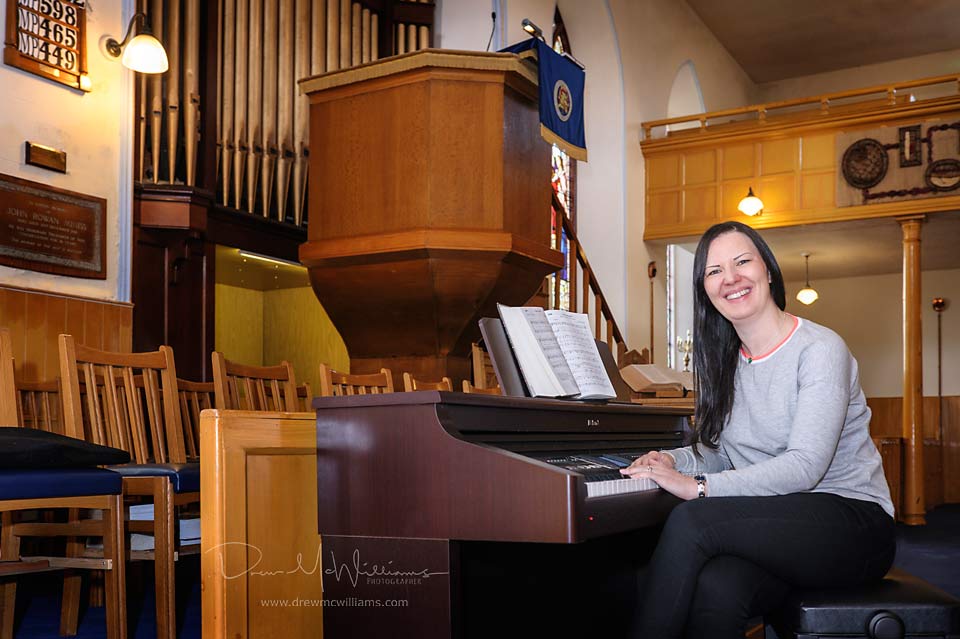
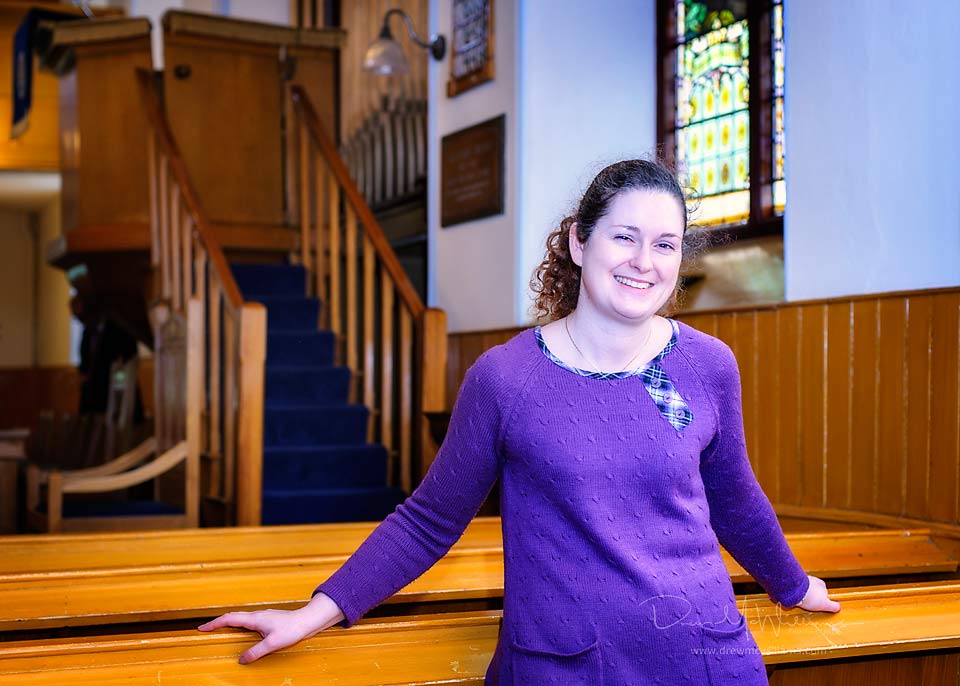
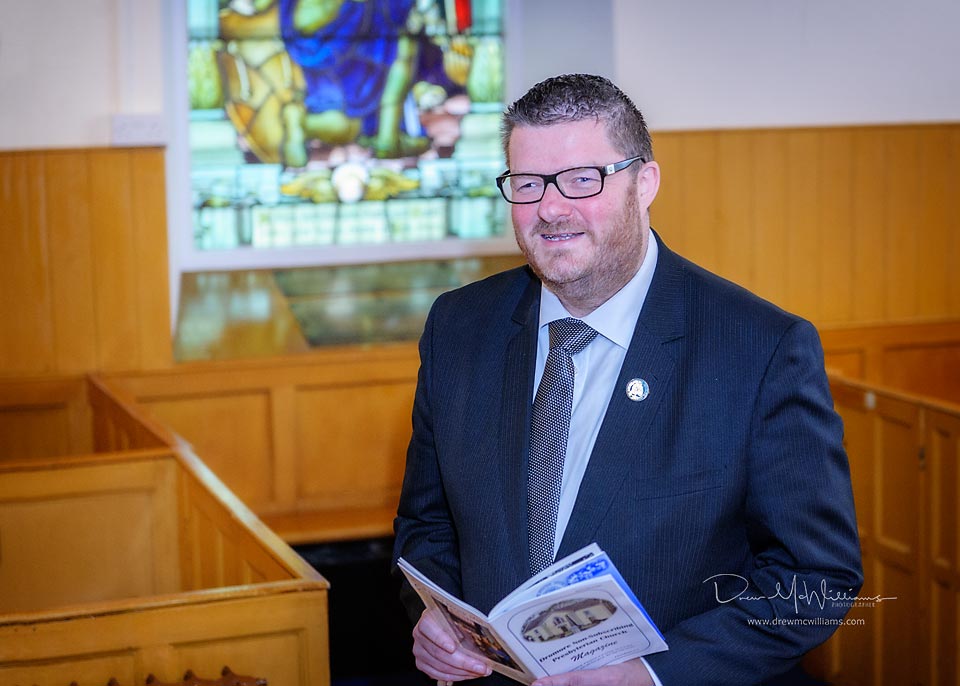
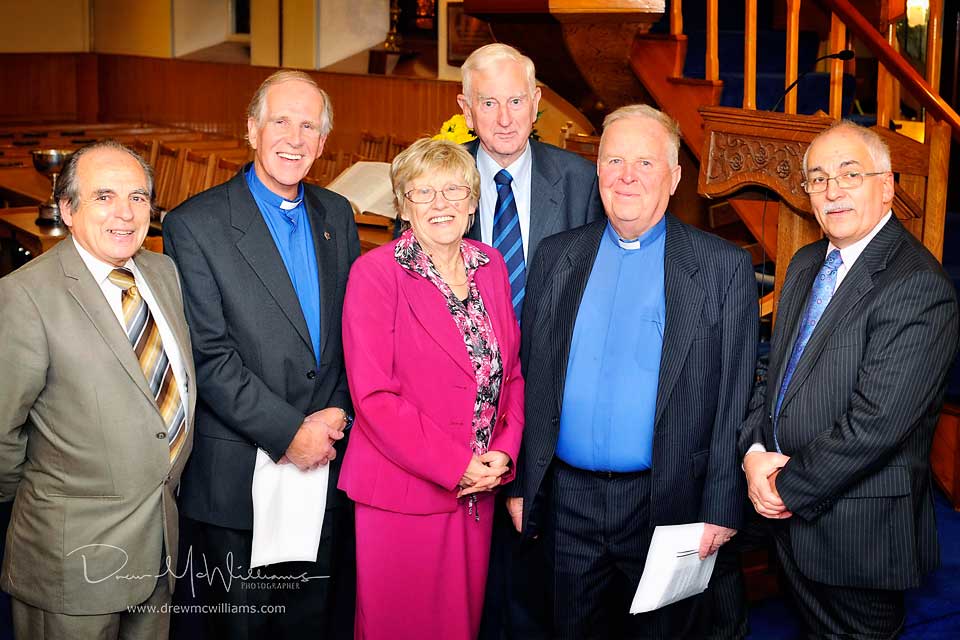
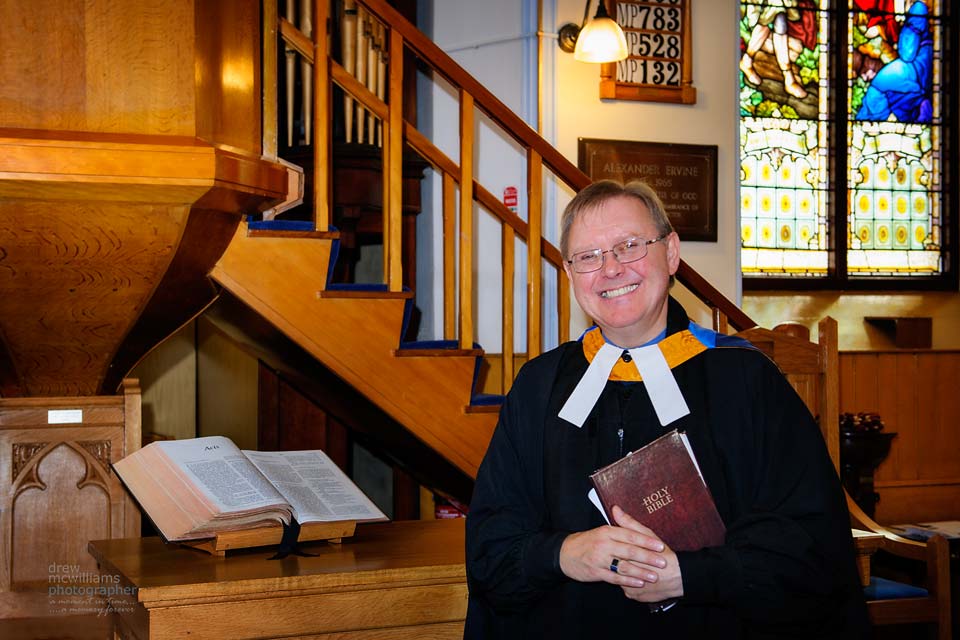
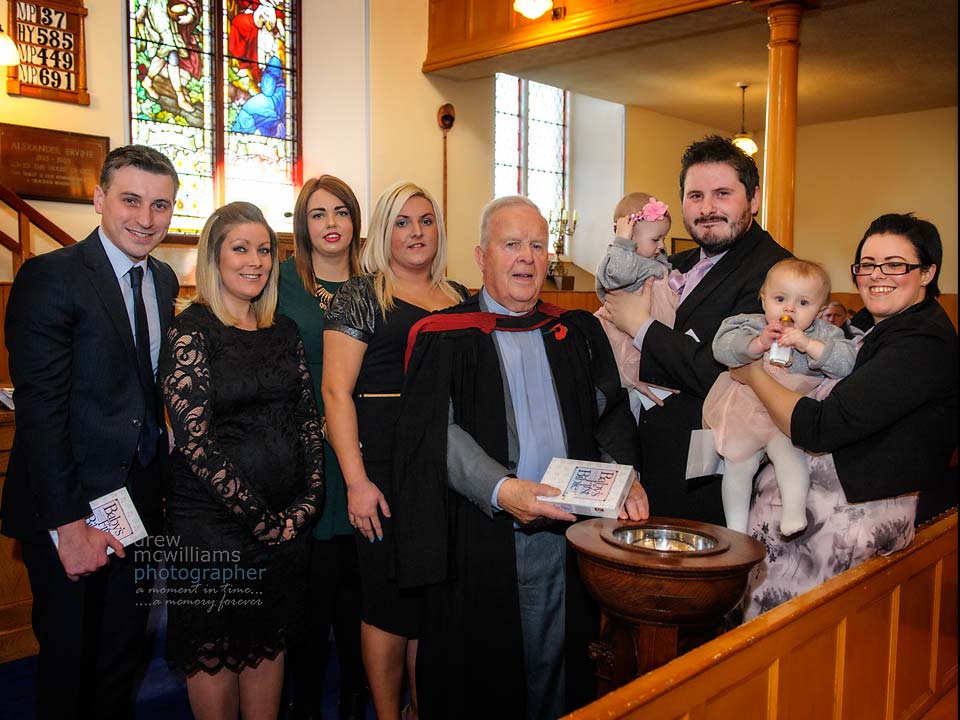
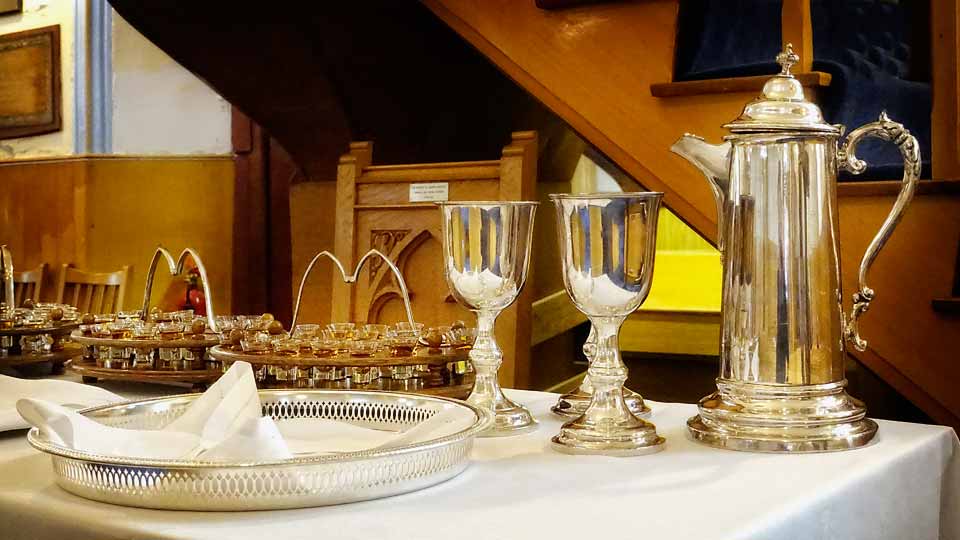
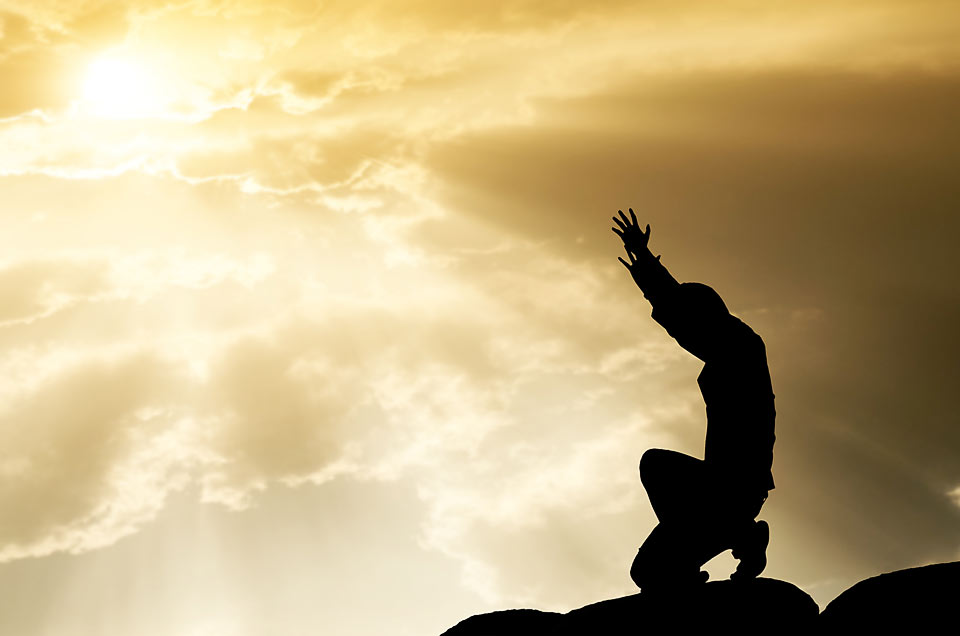
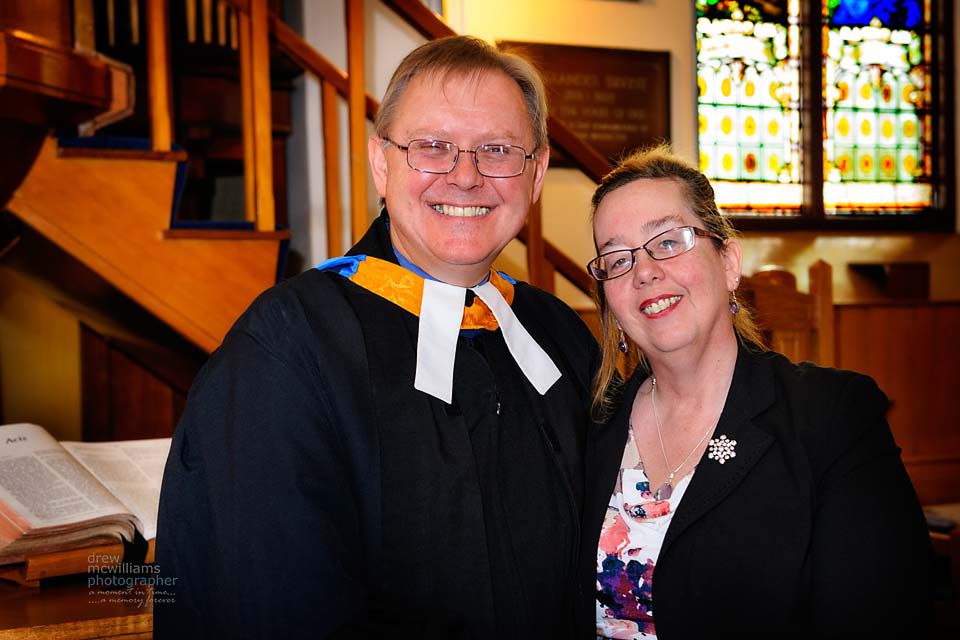
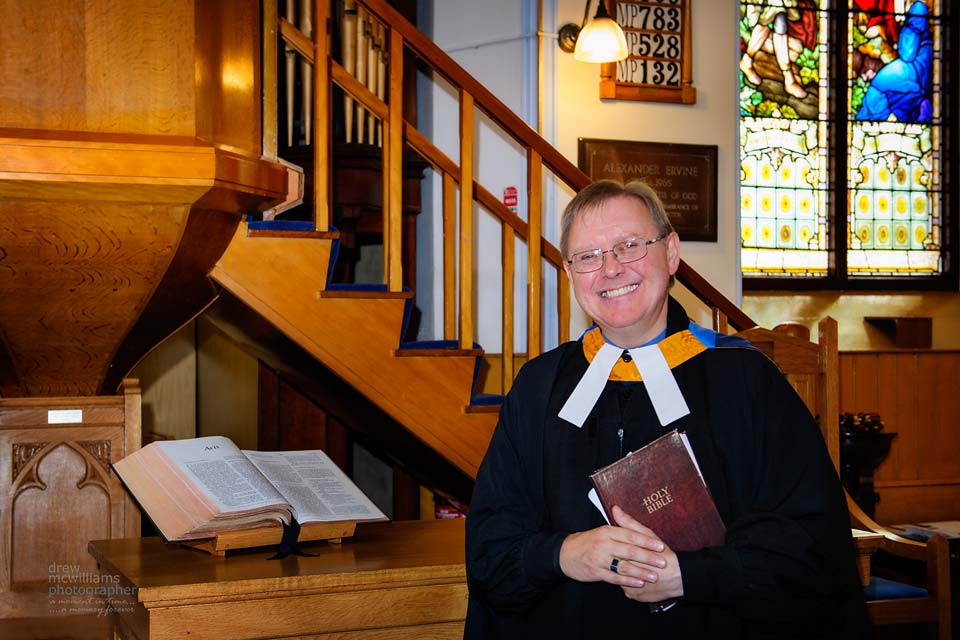
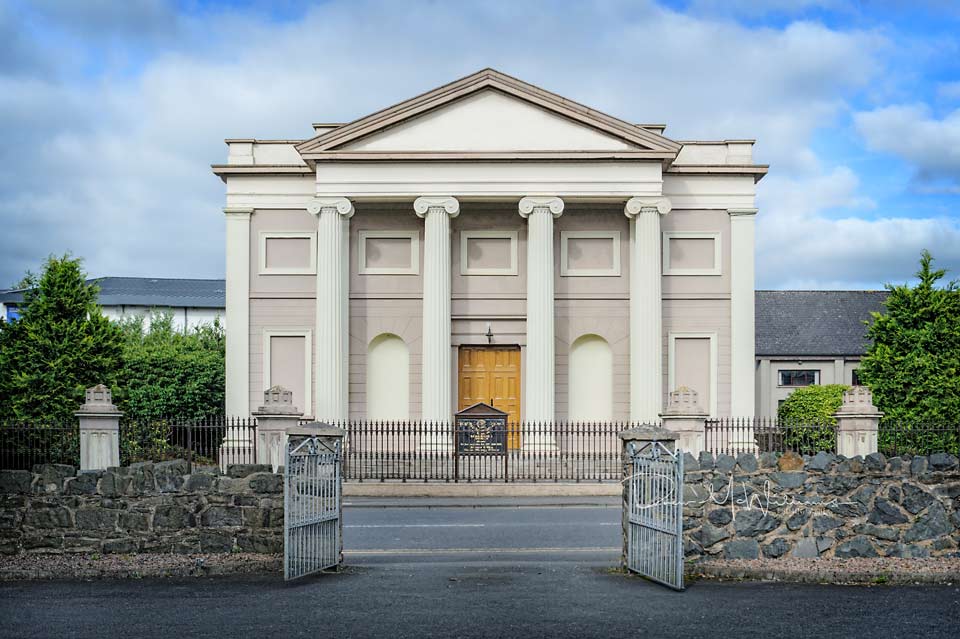
 RSS Feed
RSS Feed